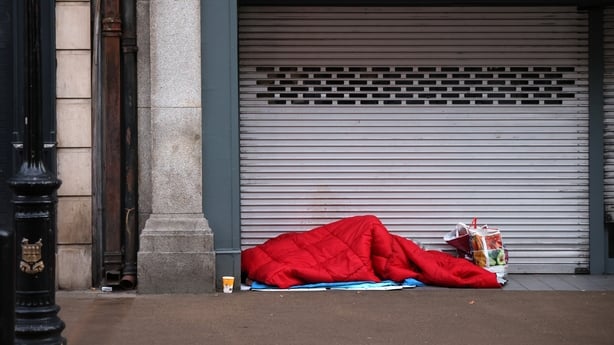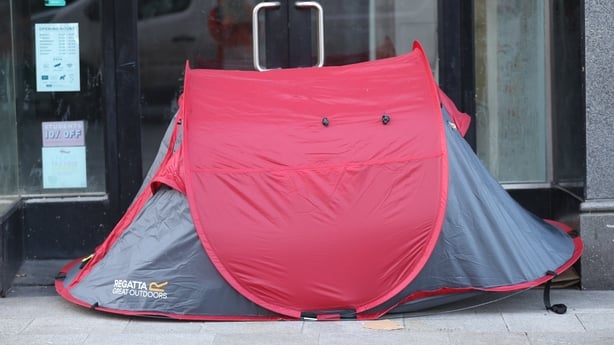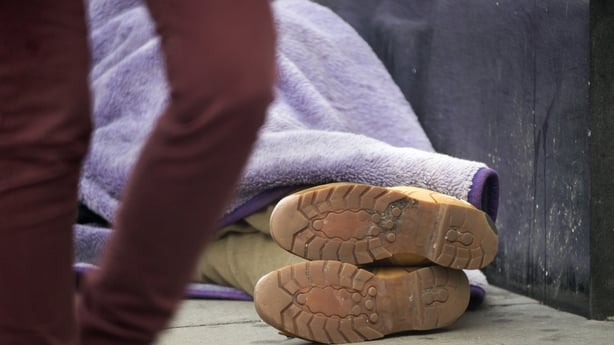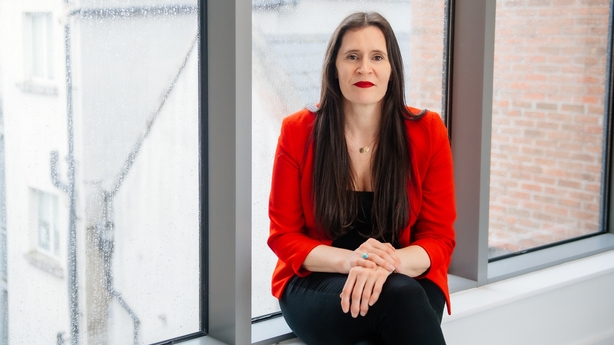More than 500 recently arrived asylum seekers are currently without any State provided accommodation.
In the five weeks since 8 March, the number more than doubled, climbing by more 280.
The UN's refugee agency, the UNHCR, described it as a "grim milestone" and said it must act as a "wake-up call for the Government" adding that "providing for the most basic needs of asylum seekers, in particular basic shelter and safety... is a clear legal obligation both under national and European law".
Dublin Simon Community has confirmed that it has had contact with a number of those impacted "including meeting people bedded down on the street".
While the Irish Human Rights and Equality Commission has reiterated that "Ireland remains in clear breach of its legal obligations regarding newly arrived applicants for International Protection".
The figure reached 501 at close of business yesterday, when all of those who arrived over the Easter Bank Holiday weekend presented to the International Protection Office.

The Government ceased offering accommodation to newly arrived adult asylum seekers presenting without children on 24 January, citing a nationwide shortage.
In total 849 were not offered accommodation since then, though the State subsequently offered accommodation to 348.
However, this process also practically stalled in mid March with offers made to just two people between 8 March and 4 April, before 25 more people received offers last week.
Accommodation is still be offered to families with children and those deemed vulnerable.
Figures released by the Department of Children, Equality, Disability, Integration and Youth show that nine couples are among those without state provided accommodation.
Two weeks ago RTÉ News reported on how a pregnant asylum seeker spent a number of nights sleeping in a tent before accommodation was offered to her. RTÉ understands that her partner has still not been accommodated.
"In recent weeks, the Dublin Simon Outreach team has had contact with a number of people impacted by the IPAS (International Protection Accommodation Service) accommodation shortage through a combination of queries via phone or in person, including meeting people bedded down on the street," Ciaran King, Dublin Simon Outreach Manager told RTÉ News.
Mr King said that the number was difficult to quantify.

"Many engagements have been short-term as people have been accommodated in the meantime," Mr King said, but he added that "the team has noted some more complex cases".
"The team is continuing to support every person they meet," he said.
People 'desperate and exhausted'
Nick Henderson, Chief Executive of the Irish Refugee Council said it was helping at least 220 of those currently without State provided accommodation.
"Recent days have been extremely busy with a huge demand on our drop in service," Mr Henderson said.
"The situation seems to be deteriorating each week, people are desperate and exhausted and some have been assaulted and had belongings stolen, others have health conditions that are deteriorating because of sleeping rough," he said.
"Several couples have contacted us for support also and also unaccompanied children whose age is disputed," Mr Henderson said.
"Of additional concern is that people are not being given the option of pausing their asylum claim and are still being required to go through the asylum process while homeless."
Aubrey McCarthy, Chair of Tiglin which operates Lighthouse Homeless services on Pearse Street in Dublin said that newly arrived asylum seekers have been coming to it for help.
"Some have come directly from the airport saying they have been told that we can give them accommodation, but we don't have any available accommodation" explained Mr McCarthy, adding that they do offer food and other supports to those affected.
"We cannot allow this to become normalised," head of Office with UNHCR Ireland, Enda O'Neill said.
"Sleeping on the street is not safe, it can have significant health impacts and exposes people to greater risks of theft and assault," Mr O'Neill said.
"This is particularly the case for asylum seekers who cannot access mainstream homeless services or emergency accommodation. In many cases they do not speak English, they are unfamiliar with the city and may be subject to racist or xenephobic attacks," Mr O'Neill said.

"It can be an extremely traumatising experience for these people, many of whom have experienced significant trauma in their lives prior to coming to Ireland," he added.
"We all acknowledge that the Government is operating in extremely challenging circumstances given the recent non-renewal of contracts by some large hotels and the wider crisis in the housing sector more generally," Mr O'Neill said.
"But this cannot be used as an excuse not to provide for the most basic needs of asylum seekers."
Mr O'Neill said that ensuring that asylum seekers have basic shelter and that they are safe "is a clear legal obligation" under both Irish and European law.
"This is an emergency situation which requires the Government to take extraordinary measures to ensure it can meet these basic humanitarian needs," Mr O'Neill said.
Chief Commissioner at the Irish Human Rights and Equality Commission Sinéad Gibney said: "We believe Ireland remains in clear breach of its legal obligations regarding newly arrived applicants for International Protection as we communicated with the Minister in January of this year."
"We are limited in what we can say as we are involved in litigation," Ms Gibney said.
"However, we remain deeply concerned by the fact that that newly arriving applicants for International Protection, especially those who present as single people without children, are not being provided with accommodation."

A spokesperson for the Department said it "is continuing to work intensively to source further accommodation and to follow up with those IPAs (International Protection applicants) awaiting an offer of accommodation".
In addition to the ongoing shortage, contracts with four hotels accommodating people seeking international protection came to an end at the end of March and 1,600 people needed to be re-accommodated.
A spokesperson for the Department confirmed that it was able to source alternative accommodation for all 1,600.
The Department confirmed that since the beginning of 13 March, emergency accommodation centres for International Protection applicants were opened in various locations, resulting in over 600 bed spaces.
174 male asylum seekers are also currently being housed in tents, 88 in Knockalisheen in Meelick in Co Clare and 86 who were recently moved into Columb Barracks in Mullingar in Co Westmeath.
Initally adult asylum seekers left without State provided accommodation were also left without the weekly Direct Provision allownance of €38.80 per adult, known as the Daily Expenses Allowance.
However RTÉ has been informed that they are now considered eligible for this payment and proceedures have been put in place to enable them to apply for it and receive it.
In February the Department of Social Protection told RTÉ News that this allowance was "paid in line with ... legislation" to those in IPAS (International Protection Accommodation Service) accommodation, and that those "still waiting for IPAS accommodation" could apply for discretionary Additional Needs Payments.
However the Department has confirmed that the current position is that "people who have applied for International Protection and have not yet been provided with accommodation by IPAS can apply to the Department of Social Protection for the Daily Expenses Allowance".
A spokesperson said that a "person may also apply for an Additional Needs Payment" but reiterated that these "are assessed on a case by case basis".
In addition RTÉ understands that those waiting on State provided accommodation are entitled to two €25 shopping vouchers.
Irish Refugee Council CEO Mr Henderson said "in practice supports and services are completely inadequate".






